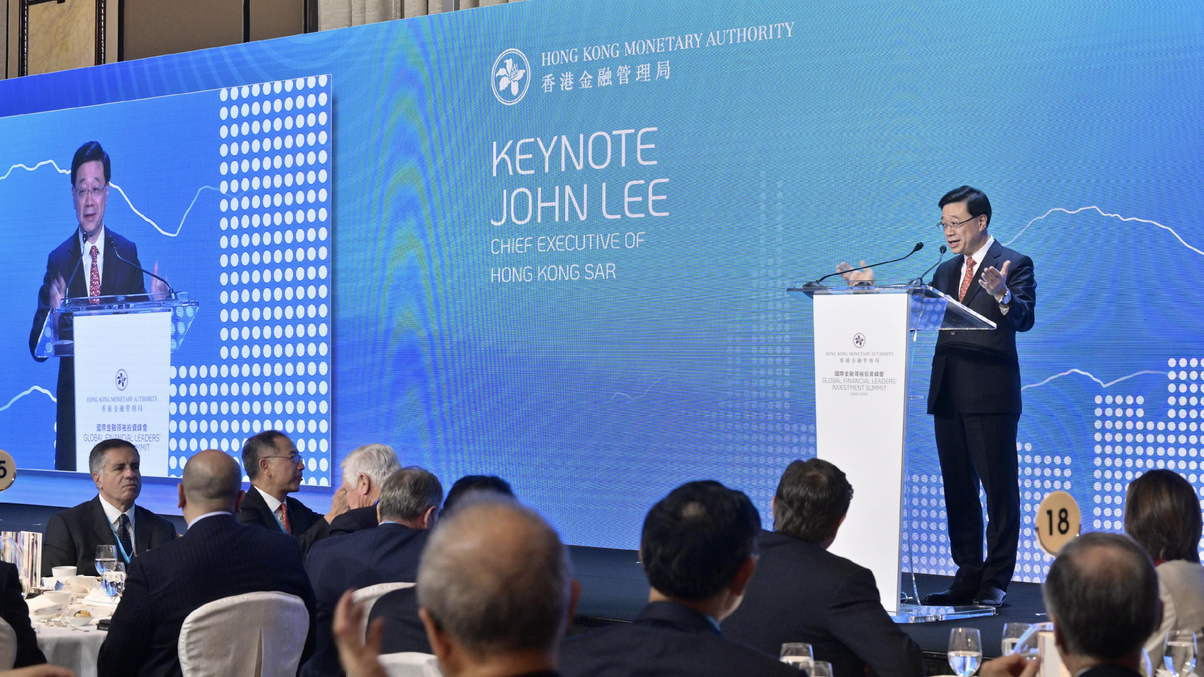Leaders emphasise Hong Kong's 'unique' role in China growth
A bullish message of Hong Kong's re-emergence was conveyed by a stellar cast of speakers at the Global Leaders' Summit.

The Global Financial Leaders’ Investment Summit on Wednesday was seen as an opportunity to kick-start Hong Kong as a financial centre after a strict, and highly unpopular, Covid lockdown.
Sign in to read on!
Registered users get 2 free articles in 30 days.
Subscribers have full unlimited access to AsianInvestor
Not signed up? New users get 2 free articles per month, plus a 7-day unlimited free trial.
¬ Haymarket Media Limited. All rights reserved.


